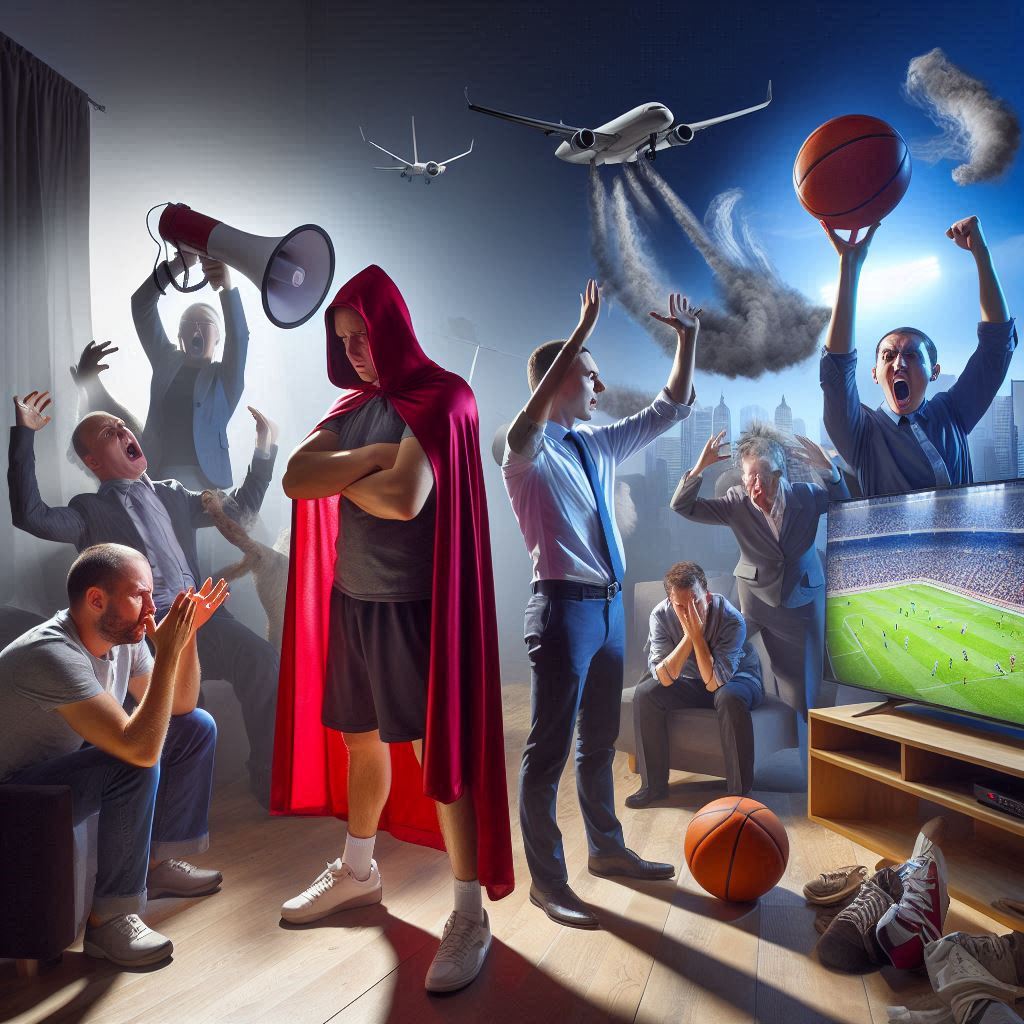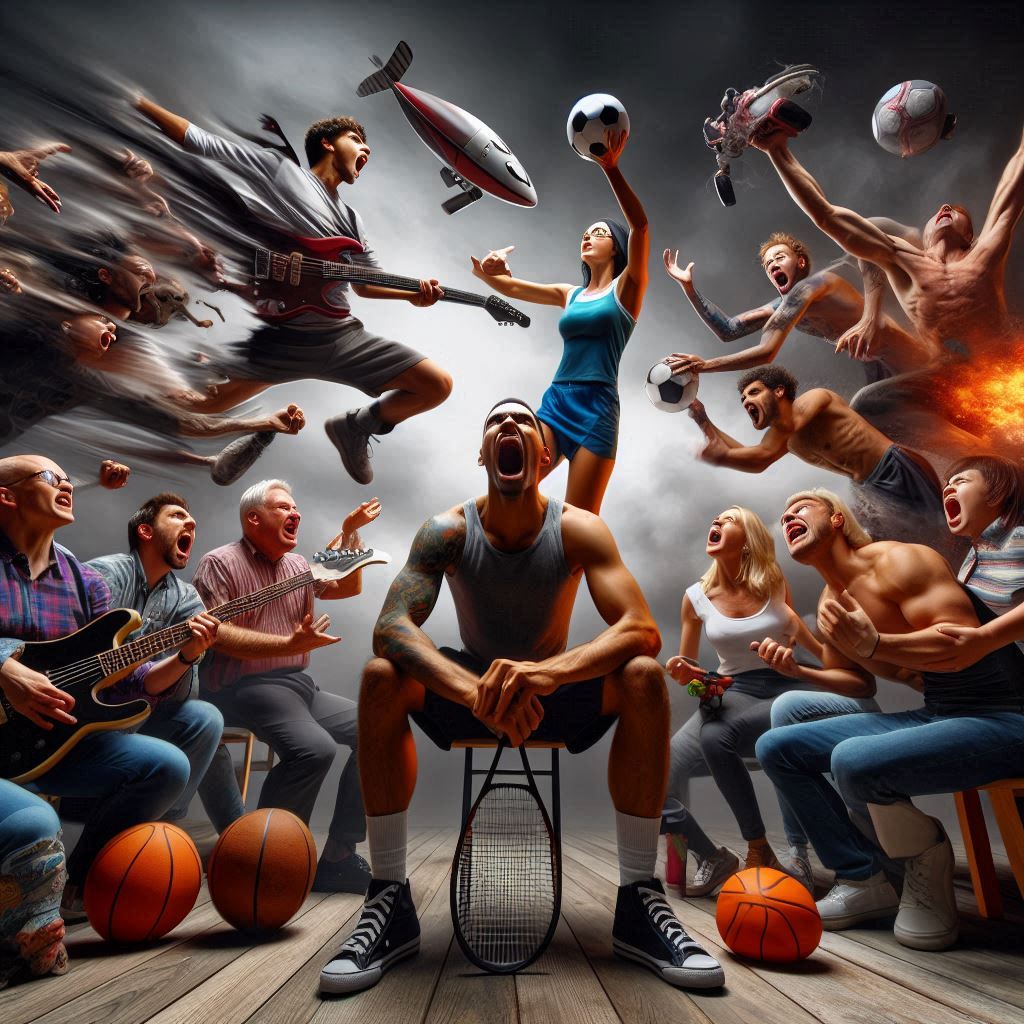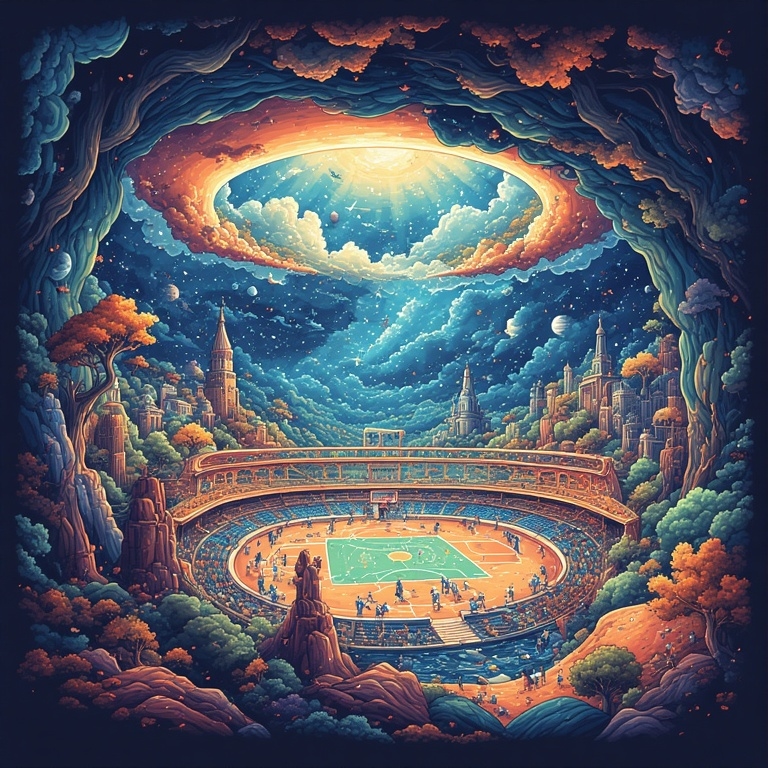Why Do Some People Dislike Sports Or Just Hate It
Understanding the Dislike for Sports
A Exercise Of Why?
Sports are a massive part of many cultures and societies, bringing people together and fostering a sense of community. However, not everyone shares the same enthusiasm for sports. Understanding the reasons why some people might dislike sports can provide a deeper insight into diverse perspectives and preferences.
Lack of Interest
Personal Preferences
Everyone has their unique interests and passions. For some, sports simply do not align with their personal preferences. People may find other activities like reading, art, or music more engaging and fulfilling. This lack of interest can stem from a variety of factors, including childhood experiences, social influences, or innate personality traits.
Boredom and Monotony
Certain individuals find sports boring and monotonous. The repetitive nature of some sports, combined with the slow pace of games like baseball or cricket, can make it difficult for them to maintain interest. This perception of sports as uninteresting can lead to a general aversion to participating in or watching them.

Negative Experiences
Past Trauma or Negative Associations
Negative experiences related to sports can have a lasting impact on an individual’s perception. Bullying, exclusion, or humiliation during physical education classes or sports events can lead to a deep-seated dislike for sports. These negative associations can be difficult to overcome and can shape one’s attitude toward sports for life.
Injuries and Physical Strain
Sports often come with the risk of injuries and physical strain. Individuals who have experienced significant injuries or chronic pain as a result of sports participation may develop an aversion to them. The fear of getting hurt again can outweigh the potential benefits of engaging in sports activities.
Cultural and Social Factors
Cultural Differences
Cultural background can play a significant role in shaping one’s attitude toward sports. In some cultures, sports may not be as prominent or valued as in others. For instance, certain societies might prioritize academic achievements or artistic pursuits over athletic accomplishments, leading to a lack of interest in sports.
Social Pressure and Expectations
The social pressure to conform to certain norms can also influence one’s dislike for sports. Individuals who do not fit the stereotypical image of an athlete might feel excluded or marginalized. This pressure to conform can create a sense of resentment toward sports and those who participate in them.

Psychological Factors
Performance Anxiety
Performance anxiety is a common issue among individuals who dislike sports. The fear of failure or judgment can be overwhelming, making it difficult for them to enjoy sports activities. This anxiety can stem from a lack of confidence in their athletic abilities or past experiences of failure and embarrassment.
Introversion and Social Interaction
Introverted individuals may find the social aspects of sports daunting. Team sports, in particular, require constant interaction and communication, which can be draining for introverts. The preference for solitary activities or small group interactions can lead to a disinterest in sports.
Economic and Accessibility Issues
Cost of Participation
The financial cost of participating in sports can be a barrier for some individuals. Equipment, membership fees, and travel expenses can add up, making sports participation unaffordable. This economic strain can lead to a lack of interest in sports, as the barriers to entry seem insurmountable.
Lack of Access to Facilities
Access to sports facilities and resources can also influence one’s attitude toward sports. Individuals living in areas with limited sports infrastructure or opportunities may not develop an interest in sports due to the lack of exposure. The availability of parks, gyms, and sports clubs can significantly impact one’s likelihood of engaging in sports activities.

Health and Fitness Considerations
Physical Limitations
Some individuals may have physical limitations or health conditions that prevent them from participating in sports. Chronic illnesses, disabilities, or other medical conditions can make sports participation challenging or impossible, leading to a lack of interest in sports.
Lack of Fitness
A lack of physical fitness can also contribute to a dislike for sports. Individuals who are not in good shape may find it difficult to keep up with the physical demands of sports activities, leading to feelings of inadequacy and frustration.
Media and Representation
Overcommercialization
The overcommercialization of sports can be off-putting to some individuals. The constant barrage of advertisements, sponsorships, and commercialization can overshadow the pure enjoyment of the game. This commercialization can create a sense of disconnection from the true spirit of sports.
Media Bias
Media representation of sports can also influence one’s attitude. The focus on certain sports or athletes, often driven by media bias, can lead to a lack of exposure to other sports that might be of interest. This limited representation can shape one’s perception of sports and their overall interest.

Environmental Concerns
Resource Consumption
Some individuals may dislike sports due to environmental concerns. The construction of sports facilities, use of resources, and environmental impact of large sporting events can be seen as wasteful. This concern for environmental sustainability can influence one’s attitude toward sports.
Climate Impact
The climate impact of sports, including travel-related emissions and energy consumption, can also be a factor. Individuals who prioritize environmental conservation may find it difficult to reconcile their values with the environmental impact of sports.
Educational and Developmental Factors
Academic Prioritization
In some cases, academic priorities can overshadow sports participation. Individuals who are highly focused on their studies may not have the time or energy to engage in sports activities. This focus on academic achievement can lead to a lack of interest in sports.

Developmental Stages
During different developmental stages, individuals may have varying levels of interest in sports. For instance, children and adolescents might be more inclined to participate in sports, while adults may have other priorities. This changing interest can influence one’s overall attitude toward sports.
Conclusion
In conclusion, there are numerous reasons why some people might not like sports. These reasons can range from personal preferences and negative experiences to cultural and social factors. Understanding these diverse perspectives can help foster a more inclusive and empathetic society, where everyone’s interests and preferences are respected and valued.
Join the Discussion
We hope you found this exploration into the reasons why some people might not like sports insightful. Now, we want to hear from you! What are your thoughts and experiences when it comes to sports? Do you share any of the perspectives mentioned in this article, or do you have a unique viewpoint to add?







2 Comments
Comments are closed.